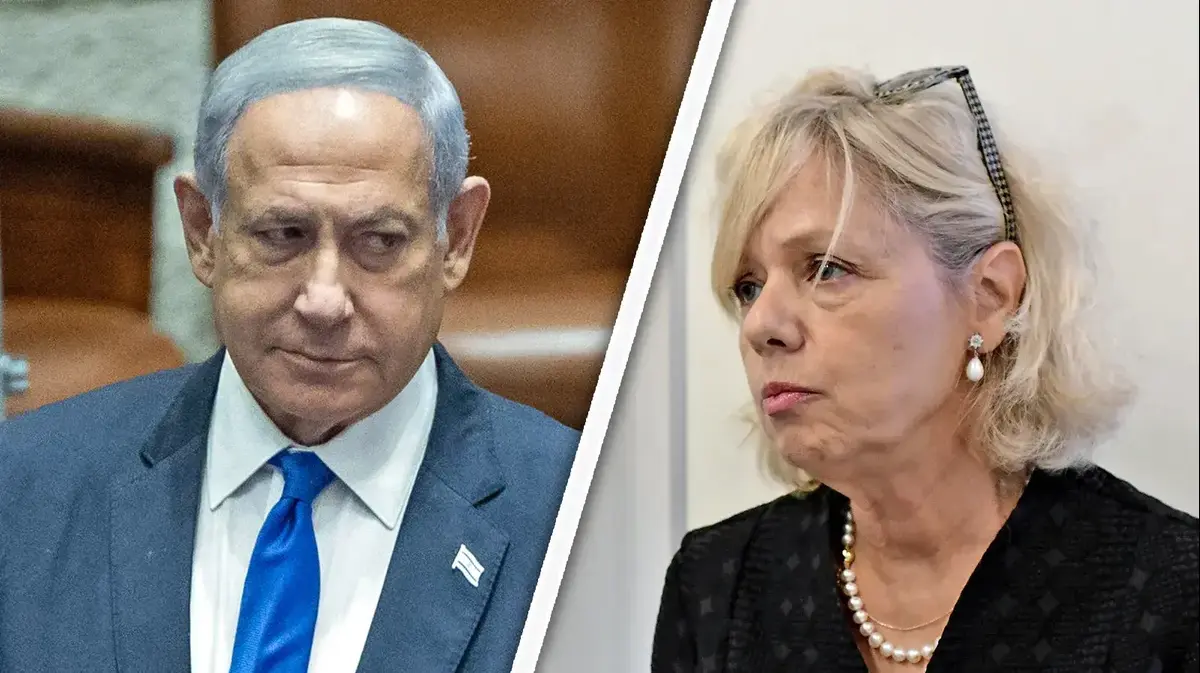Of money
All articles
Defense budget: The bomb that canceled the cabinet meeting
Last week, the defense item seemed to be the first agreed on in the budget, but despite the agreement of the political echelon, two senior finance officials showed up last night to warn of the implications of the "chief of staff's addition" to the defense budget.
Tags
IDF
Pensions
Chief of Staff
Avigdor Lieberman
Bnei Gantz
Naftali Bennett
Sonia Gorodisky
Tuesday, 10 August 2021, 08:06 Updated: 08:36
Share on Facebook
Share on WhatsApp
Share on general
Share on general
Share on Twitter
Share on Email
0 comments
The cabinet meeting scheduled to take place this morning has been canceled and will be postponed to next week. This is against the background of disagreements over the draft law and the IDF's new pension model. Last night, the budget commissioner in the Ministry of Finance, Yogev Gardos, and the commissioner of salaries, Kobi Bar-Natan, submitted a strong opinion against the agreement reached between Prime Minister Bennett, Finance Minister and Defense Minister Ganz. the increasing number of people receiving extra staff.
they have warned that adoption of the outline of IDF overwhelm the defense budget 15 billion over the next decade. This is when the IDF's actuarial liability for a budgetary pension is already NIS 360 billion, and in the last year alone it has increased by 5%.
"Chief of Staff increases" are a percentage addition to the IDF pensioners' pension for the budgetary pension to which they are entitled and are currently paid to about 98% of IDF retirees. , When the maximum increase reaches a rate of 19% per retiree.
These scope and rates of increase are unique not only in comparison with the other civil service retirees in a budgetary pension arrangement, but also in comparison with other security bodies.
More on Walla!
NEWS
You will not believe how much you suckers: demand your money back
To the full article
Yogev Gordos, in charge of budgets at the Ministry of Finance.
Did he surprise the finance minister or is this a coordinated opposition?
(Photo: official website, -)
Rewarding home front roles and not fighters
"The legality of the mechanism used by the IDF to increase the chief of staff's is questionable," the opinion said. "The Ministry of Defense's proposal seeks to retroactively legalize the current situation regarding permanent employees over the age of 40 and seeks to create a similar arrangement regarding permanent employees under the age of 40, in which all IDF retirees receive percentage additions to the pension.
"Surprisingly, the Ministry of Defense's proposal is rewarded with more rear positions. Especially reserve positions, which are entitled to an additional 4% increase, compared to combatants who served continuously, who received only an additional 3%. The
cost of all increases in the IDF is estimated at NIS 1.3 billion per year. It is about one-sixth of the IDF's actuarial liability
.
The position of senior finance officials is not surprising. For years, senior officials in the ministry who have taken the budgetary pension (or the bridging pension that replaced it) have been warning pensioners of the defense establishment, like a time bomb in the state budget. There is almost no economic factor - including the Bank of Israel and other valuation factors that has not dealt with the issue - and has usually reached the same conclusion.
Despite this, the prime ministers and finance ministers of the Israeli governments refrained from touching on the issue. Even when they allegedly carried out a reform (e.g. replacing the budget pension with a bridging pension) it was mainly a matter of semantics rather than a real change in the method of compensation for IDF retirees. The sensitivity of the issue, To roll over one government to its successor.
Although Lieberman has proven, at least in attitude, that he can initiate reforms and perhaps even pass them on to the wrath of the various pressure groups (the agricultural lobby), but it is doubtful that even he is already prepared for this battle - which is expected to be the most difficult, L is on target, but all the distortions of the pension in the public service, those in which lawyers and judges enjoy huge pensions, compared to teachers.
The issue becomes doubly problematic when the defense minister is considered a weak link in the coalition in terms of his willingness to maintain it even at the cost of concessions, with Likud officials ostensibly offering him the prime minister in the event of an alternative government.
Kobi Bar Natan, in charge of budgets at the Ministry of Finance.
A sharp opinion against the agreement between the Prime Minister and the ministers on the subject of the "Chief of Staff's grant" (Photo: Finance Spokeswoman)
In the continuation of the opinion, the two mention that IDF retirees are in any case entitled to a significant benefit, in the form of an extended pension from an early age. The average retirement age of IDF retirees is about a decade lower than the average retirement age Higher than their counterparts.
For example, in 2019 the average retirement age in the IDF was 46, while the average retirement age of police officers and guards was 54 and the retirement age of other servicemen in the defense system was 59, while the average pension for IDF retirees (officers and combatants) was NIS 17,256 per month, while the average allowance for police officers and guards was NIS 14,072 and the average allowance for the rest of the defense establishment was NIS 17,552 - a slight difference in light of the fact that these retirees retire about 13 years after IDF retirees.
"The IDF's budgetary pension expenditures stand at about NIS 8 billion a year, and are expected to increase significantly in the future and reach about NIS 12.3 billion in 2040," senior finance officials warn.
Defense Minister Bnei Gantz and Finance Minister Avigdor Lieberman.
The two reached an understanding on the addition to the defense budget (Photo: TPS, Kobi Richter)
Security or politics
The position of senior finance officials apparently stands in contrast to the tripartite agreement reached between the prime minister and the defense and finance ministers regarding the defense budget.
The question is whether it represents a real opposition of the professional echelon to the conclusion - an opposition that was the basis of all senior officials of the Ministry of Finance to the issue of pensions in the defense system, or is it an attempt to conduct another debate whose background is professional - ie without causing a political crisis.
The defense minister is considered the weak link of the government and keeping his eight seats in the coalition is critical to its survival.
Hence it is possible that despite the agreements reached with Bennett and Lieberman, there is an attempt here to open the issue for further discussion, without risking violating the understandings that Bennett received.
Share on Facebook
Share on WhatsApp
Share on general
Share on general
Share on Twitter
Share on Email
0 comments









